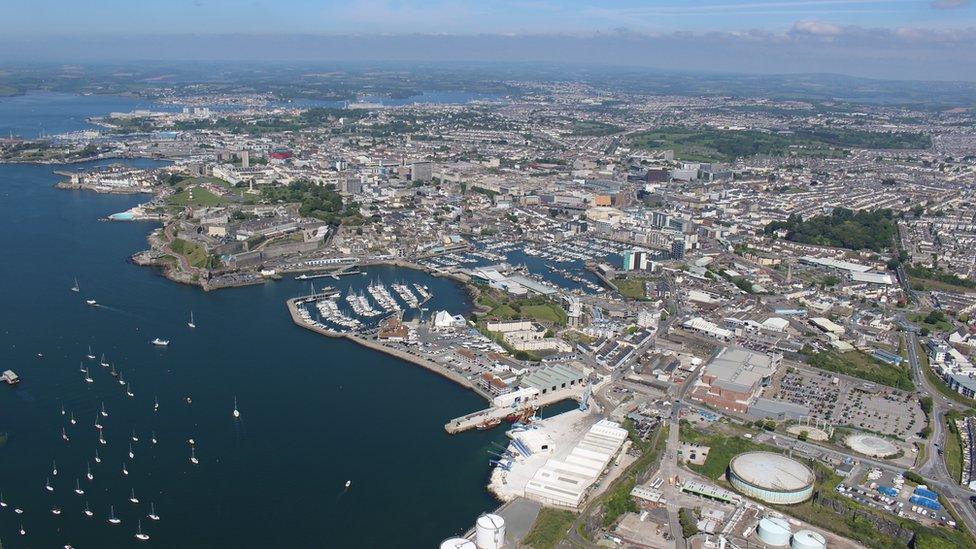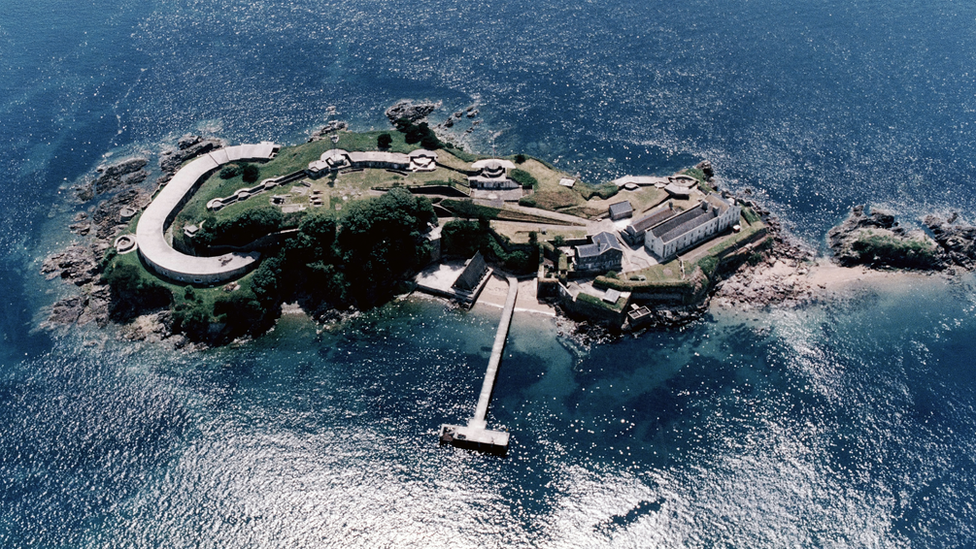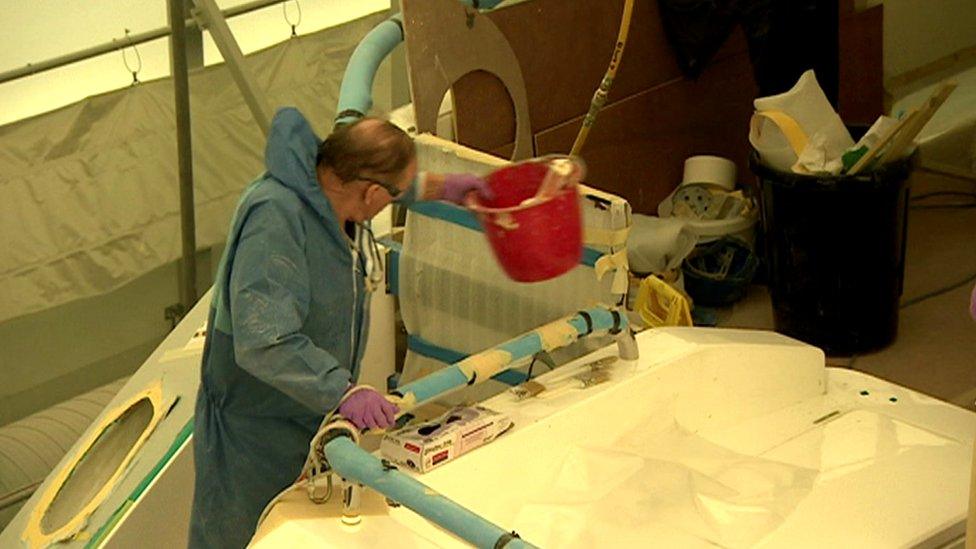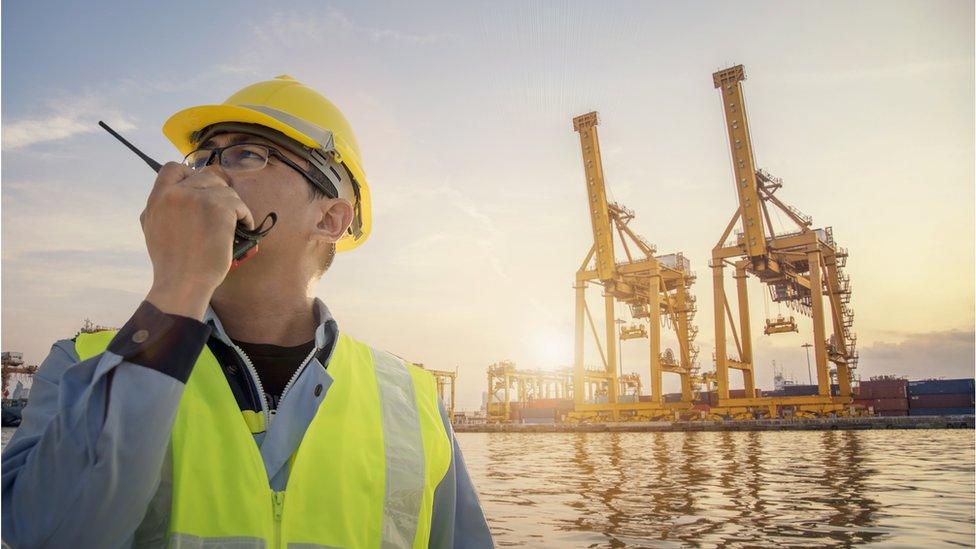Plymouth freeport could 'suck business' from local area
- Published

Plymouth is one of eight new freeports being created across England
Plymouth's new freeport is "excellent for the city" but could have a detrimental impact on the local area, an expert has said.
The city successfully bid for one of eight new freeports being created across England.
The government hopes they will boost the economy in those areas.
A freeport expert said the concern is that they "suck business in to the freeport area which is not necessarily good for the rest of the local region".
Prof Catherine Barnard has written a report on freeports, external for the think tank UK in a Changing Europe, and said it was "very good news for Plymouth" in terms of attracting business, enterprise and creating jobs.

Freeports are not a new concept - Drake's Island in Plymouth was made a freeport in the year 1393
However she warned that evidence from abroad shows that surrounding areas "may suffer".
"Freeports operate a bit like a big vacuum cleaner and they suck in business from the surrounding area," she said.

It is hoped that freeport status will capitalise on Plymouth's marine sector
In her report, she argues that if lowering the level of tariffs or regulation is justifiable, "they should be lowered for the whole country".
"The main impact of freeports - and any associated reductions in regulation - is therefore likely to be to relocated rather than create economic activity and jobs," the report adds.
Plymouth City Council made the successful bid with the claim that freeport status would create 9,000 new jobs over the next 10 years.
"I was actually surprised at some of the job numbers that were stated by other freeport bids and I was worried that we actually came in a bit low," said Richard May, head of marine investment at Plymouth City Council.
"I think that within the zone itself, there's actually a good chunk of that 9,000, but it's the surrounding area that will also get a benefit," he added.
What are freeports?
Freeports are usually located around shipping ports, or airports.
Goods that arrive into freeports from abroad aren't subject to the tax charges, called tariffs, that are normally paid to the government.
These taxes are only paid if the goods leave the freeport and are moved elsewhere in the UK.
Otherwise, they are sent overseas without the charges being paid.
The government says the new freeports, which they hope will regenerate deprived areas, will begin operations from late 2021.
- Published4 March 2021

- Published22 March 2023
